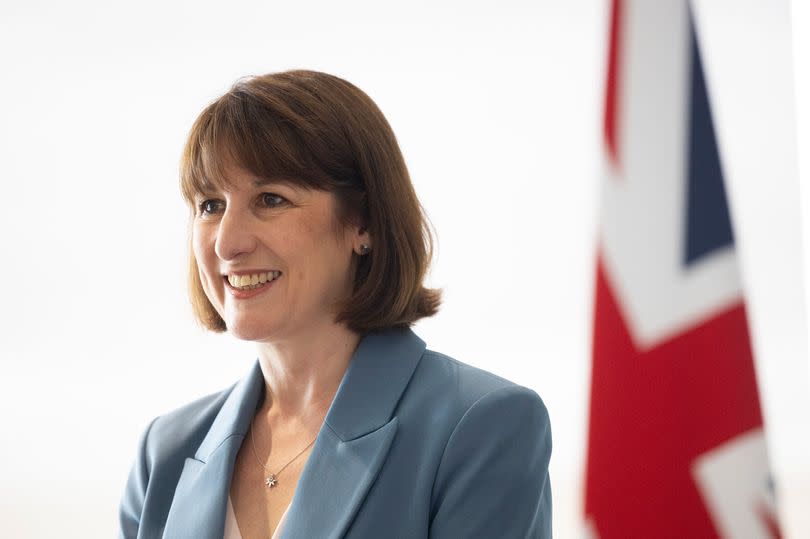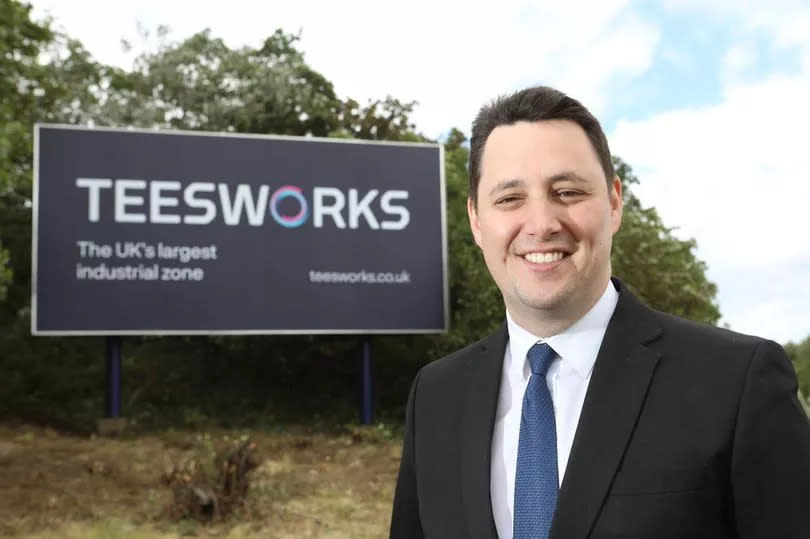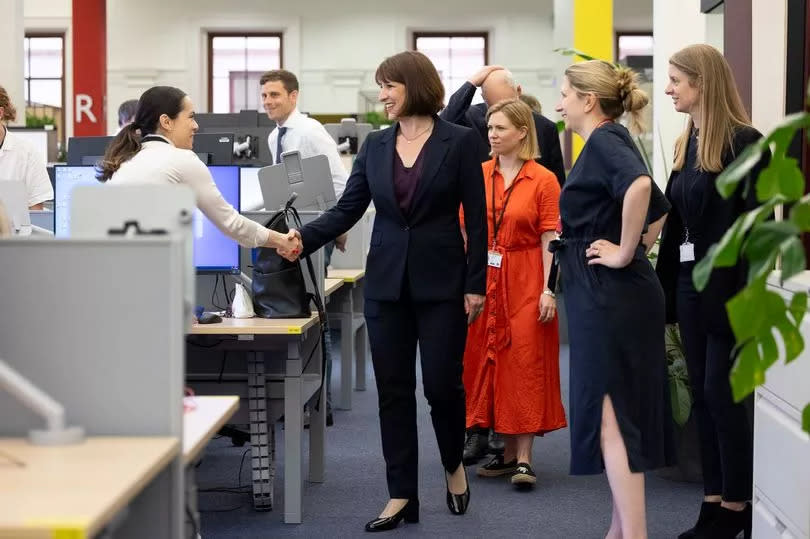New Chancellor non-committal over prospect of further investigation by watchdog into Teesworks

New Chancellor Rachel Reeves has refused to commit to a National Audit Office (NAO) investigation into the Teesworks industrial project.
Senior Labour figures, including Mrs Reeves, had previously called for the watchdog to conduct a further probe following an independent investigation commissioned by former Levelling Up Secretary Michael Gove, which reported its findings earlier this year.
Six days into her new job becoming the UK’s first female Chancellor of the Exchequer following Labour’s General Election victory last week, Mrs Reeves visited Darlington ’s Economic Campus (DEC) to address staff working there. Earlier this week Conservative Tees Valley Mayor Ben Houchen, who helped secure the campus for the area, said it would be a Government decision if they wanted to be “sidetracked” by another inquiry.
READ MORE: Pay squeeze means average weekly wage in Teesside borough now worth £36 less than in 2008
He also said, following a meeting with new Prime Minister Sir Keir Starmer, that he didn’t believe the PM wanted to get involved in “petty politics” and now was the time for delivery, not the same “old, tired and angry political games”.
A review panel set up by Mr Gove during the last Conservative Government found no evidence of corruption or illegality in respect of the massive regeneration project near Redcar after concerns were raised in Parliament by Middlesbrough MP Andy McDonald over the involvement of private sector developers. But it said expected standards were not being met when it came to managing public funds and deemed that systems of governance and finance did not provide sufficient transparency and oversight to evidence value for money to taxpayers, making 28 recommendations in total which Mr Houchen has pledged to follow.
The Local Democracy Reporting Service (LDRS) had asked if Labour had got “cold feet” over potential NAO involvement in Teesworks now it was in Government, and what the party’s position was. The NAO itself has previously suggested it would be outside of its remit to conduct a further probe.
Mrs Reeves responded: “It is really important that we get value for taxpayers and every pound is treated with care and respect. We will work with officials and look at the possibilities there.
“But it is important as well that we work with the Mayor of the Tees Valley [Mr Houchen] to deliver for local people. Local people have voted for Labour MPs and I want those MPs to work with the mayor to deliver for people here and right across Teesside.”

The Chancellor spoke of the North-East region’s “huge potential” with its industrial heritage and great industries and businesses and skills, having set out plans for a new national wealth fund which plans to invest in carbon capture and storage, green hydrogen, offshore wind and gigafactories for electric vehicles, which she described as “crucial” industries capable of delivering good jobs and wages.
Mrs Reeves was asked about the cost of living crisis and said Labour was determined to ensure “more families had more of their own money in their pockets”. She said investing in clean energy would mean cheaper energy bills, one of the biggest pressures in terms of the cost of living.
Mrs Reeves also addressed the Hitachi plant in Newton Aycliffe, which employs a number of workers from Teesside, warnings having been sounded about a lack of train-building contracts putting its future in doubt. It was visited by Sir Keir in campaigning for the General Election.
Ms Reeves said: “We are absolutely determined to keep those jobs at Hitachi, I know how skilled those jobs are. Louise Haigh [new transport secretary] is already working with the Department for Transport to look at the options available.
“We won’t sit on our hands and allow good jobs paying decent wages just to disappear and will do everything we can to protect those jobs.”
Mrs Reeves said there were ambitions to boost the number of jobs at the DEC - a Government hub hosting an offshoot of HM Treasury, along with departments such as education, business and trade, energy and the Office for National Statistics - from 950 to 1,400 with 85% of staff already being recruited from the local area.

Separately the LDRS also asked the Chancellor whether the Government would commit to reform of the system of funding local councils and whether it could guarantee there would not be more authorities declaring themselves effectively bankrupt during the new administration. Earlier this year cash-strapped Middlesbrough Council was granted exceptional financial support from the Government in its bid to set a balanced budget, having warned of an “absolute disaster” were its financial plans not to be agreed.
Mrs Reeves said: “I recognise the dire state that [local council] services are in and the huge pressures that local government is under.
“We have committed to longer term [financial] settlements, I know how important that is for local leaders to have some certainty so they can plan for confidence for the future. We are in July now and local authorities have no idea what their budgets are going to be from next March as there has been no spending review.”
She claimed that if the UK economy had grown at the average rate of similar industrialised countries over the past 14 years, it would be £140bn bigger, meaning an extra £58bn for public services without raising a single penny in taxes.
Mrs Reeves mentioned efforts to reduce child poverty with plans for a child poverty reduction strategy which would “be at the heart of what we do as a Government”. She also described it as a “stain on our country” and something she cared passionately about.
‘Steely gaze’
While it wasn’t quite the Demon Headmaster, the Rachel Reeves' stare is something to behold. She fixes you with her gaze, barely blinking. That likening might be a tad unfair, although there is certainly a steeliness to the Chancellor. Were some of her answers also scripted? Perhaps, but there was also a ‘let’s get to work’, determined vibe.
The same messages came through. She wouldn’t make spending commitments without being able to say where the money was coming from - this was the “route to economic ruin”.
As Chancellor of the Exchequer, she also had to make sure that the numbers always add up. Growth and growing the economy was also mentioned several times as the “number one mission” in order to improve living standards.
Local journalists had been whisked into Darlington’s Economic Campus for a “huddle” with Mrs Reeves, told we had one question each (two as it turned out) and no cameras or filming were allowed. In the meantime in the background smartly dressed civil servants shadowing Mrs Reeves looked intently at mobile phones with notebooks clutched to chests.
A young female radio reporter thrust a large green microphone in front of the Chancellor, who was laughing and joking as we entered the room. Questions were eagerly asked of Mrs Reeves and appropriately answered by her, although attempts to put her on the spot were swerved with the nous of an experienced politician.
Before long our time ran out and she was whisked away with more difficult questions and tests still to come no doubt of a new Government finding its feet.

 Yahoo News
Yahoo News 
